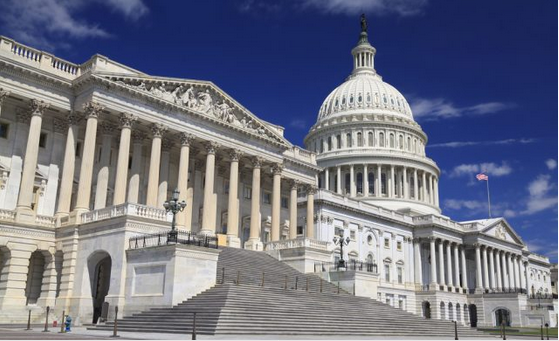By Samuel Haig –
US lawmakers have been urged to take action against unlicensed offshore bitcoin exchanges, following a subcommittee hearing within the House of Representatives. The hearing, “Virtual Currency: Financial Innovation and National Security Implications”, is being hosted by the Terrorism and Illicit Finance Subcommittee.
The Absence of KYC Guidelines and Identity Verification On Many Exchanges Were Stressed as a Major Issue
The growing proliferation of ransomware attacks that utilize cryptocurrency technology has led US lawmakers to again focus upon the potential negative use cases for blockchain technology. Representatives were told that bitcoin and other cryptocurrencies being increasingly used to fuel illicit activities are easily accessible via unregulated cryptocurrencies hosted outside of the United States. An emphasis was placed upon unlicensed exchanges being used as a vehicle for money laundering, terrorism, and cybercrime.

The absence of KYC guidelines and identity verification on many exchanges were stressed as a major issue. “Criminals can open anonymous accounts, or accounts with phony names to fly under the radar of law enforcement,” said Kathryn Haun, former Assistant US Attorney and current lecturer at Stanford University. “Thus, we have received ‘Mickey Mouse who resides at ‘123 Main Street’ in subpoena returns”.
Many of the Issues Raised Have Little Evidence Supporting the Need For a Greater Focus On Crimes Committed Involving Cryptocurrency, Than Crimes Committed Using Dollars
The US House Financial Services Committee hearing has taken place just months after the FBI was granted legal jurisdiction to hack any computer in the world that is deemed to be connected via a ‘network’ to a computer for which the FBI has a warrant authorization infiltration. This prompts some to interpret the rhetoric as a possible pre-meditated justification for considering using said jurisdiction to clamp down on unregulated bitcoin transactions internationally. “We must find a way to target these criminal currency exchanges, often sheltered in countries where officials protect and even profit from them”, said Scott Dueweke, president of The Identity and Payments Association.

Democratic Representative Ed Permutter of Colorado recognized the widespread use of cash and money transmitting services as also being vehicles for illicit activities, but argued that law enforcement possesses the regulatory means to prosecute and punish those who use such to break the law.
Many of the issues raised have little evidence supporting the need for a greater focus on crimes committed involving cryptocurrency, than for crimes committed using dollars. There is scant evidence that more than $1,000 has been donated to terrorist groups using bitcoin, and the anonymizing capabilities of the technology are often overstated. The public nature of all blockchain wallet values makes it easy for law enforcement to track the movements of funds identified to have been involved with criminal activities – an overt downside of attempting to use bitcoin as a vehicle for nefarious activities. It is also worth noting that many hackers and scammers have had their funds seized by exchanges when attempting to convert their cryptocurrency into fiat (including the shadowy and anonymously operated BTC-E) – suggesting that the cryptocurrency network possesses some internal means to alienate and punish those who seek to use bitcoin for clandestine purposes.

